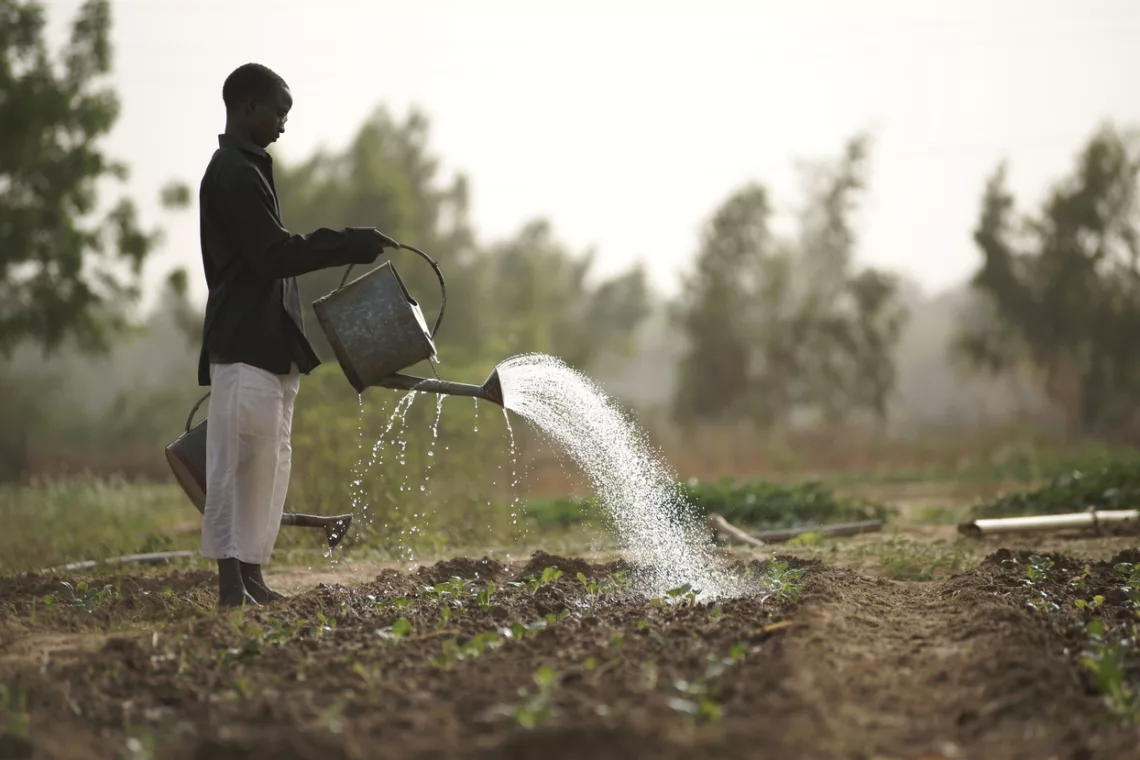Water is a vital resource for all living organisms and its significance in enhancing agricultural practices and productivity especially in a country like Nigeria, cannot be overstated.
From aquaculture to irrigation farming and livestock production, Nigeria’s economy relies heavily on agriculture for the livelihoods of millions and making efficient water management remains crucial to achieving sustainable development, food security, and poverty alleviation.
Don’t forget that already Nigeria is blessed with diverse water resources such as rivers, lakes, and underground aquifers. However, inefficient water management practices have led to significant challenges for the agriculture sector.
No doubt that no country that is serious to achieve zero hunger for its citizens should undermine the potential of harnessing water resources especially in the face climate change, including erratic rainfall patterns, droughts, and flooding. These factors have impacted crop yields, livestock production and ultimately jeopardise food security for millions of Nigerians.
President Bola Tinubu, has already identified the significance of water resources when he declared state of emergency on food security and added that “There must be an urgent synergy between the Ministry of Agriculture and the Ministry of Water Resources to ensure adequate irrigation of farmlands and to guarantee that food is produced all year round.”
Even at global level, the United Nations has also recognised the benefits of harnessing water resources for sustainable agriculture. This year’s theme of World Food Day celebrated last week is dedicated to “Water is life, water is food. Leave no one behind,” which highlighted the importance of water for food production and food security, especially in the face of climate change, population growth, and water scarcity.
According to the Food and Agriculture Organisation of the United (FAO ) countries need both national and regional designs, investment in innovative, efficient water management practices, including in modern irrigation and storage technologies and science-based solutions to address water scarcity and harnessing flooding; so that they can build a water-saving and resilient society, including through managing more effectively the water-food-energy nexus.
FAO director-general Dr QU Dongyu, who spoke at event to mark the 2023 World Food Day, said that all actors must be on board and do more, together, with all the various actors making their distinct, yet interrelated contributions.
He said countries need to produce more food with less water, while restoring land and water systems and ensuring equitable access to water, and increased resilience to extreme weather events.
The UN agency also urged governments to design science- and evidence-based policies that capitalise on data and innovation, and coordinate across sectors to plan and manage water better.
“Governments need to design science- and evidence-based policies that capitalise on data and innovation, and coordinate across sectors to plan and manage water better. Water, energy and food are inextricably linked, and for policies to be successful, it’s important they manage often-competing interests without compromising the health of our ecosystems,” he said.
One of the primary challenges in managing water resources for sustainable agriculture in Nigeria is water scarcity. In many rural areas, farmers largely depend on rainfall for irrigation, limiting agricultural activities to specific seasons.
To combat this, there is a need for the construction and rehabilitation of irrigation infrastructure, such as dams and reservoirs, which can store water during the rainy season and be used for year-round cultivation.
According to the minister of agriculture and food security, Abubakar Kyari water is essential for food production and food security, especially in the face of climate change.
Kyari stated that the ministry has commenced collaboration with the Federal Ministry of Water Resources to harness all water resources available, including river basins, dams around irrigable lands and other wetlands for multiple cropping cycle.
He said the federal government will begin the 2023-2024 dry-season farming with priority crops including wheat, rice, maize and cassava with aggressive sustainable plan for up-scaling and replicating same for other crops, livestock and fisheries across the federation.
“The theme of this year’s WFD commemoration is apt and timely for Nigeria, this renewed synergy and cooperation between our two ministries as started yielding results as assessment and operational appraisal visits to the River Basin Development Authorities as begun in earnest and would be deployed for the 2023/2024 dry-season of the federal government in conjunction with states and local government,” the minister said.
Overall, efficient management of Nigeria’s water resources for sustainable agriculture is essential to enhance food security, reduce poverty, and stimulate economic growth.
By addressing water scarcity, inadequate access, promoting efficient water use, and investing in research and innovation, Nigeria can unlock its agricultural potential and pave the way for a prosperous future. It is crucial for stakeholders, including the government, farmers, researchers, and communities, to work together to safeguard this precious resource for present and future generations.





